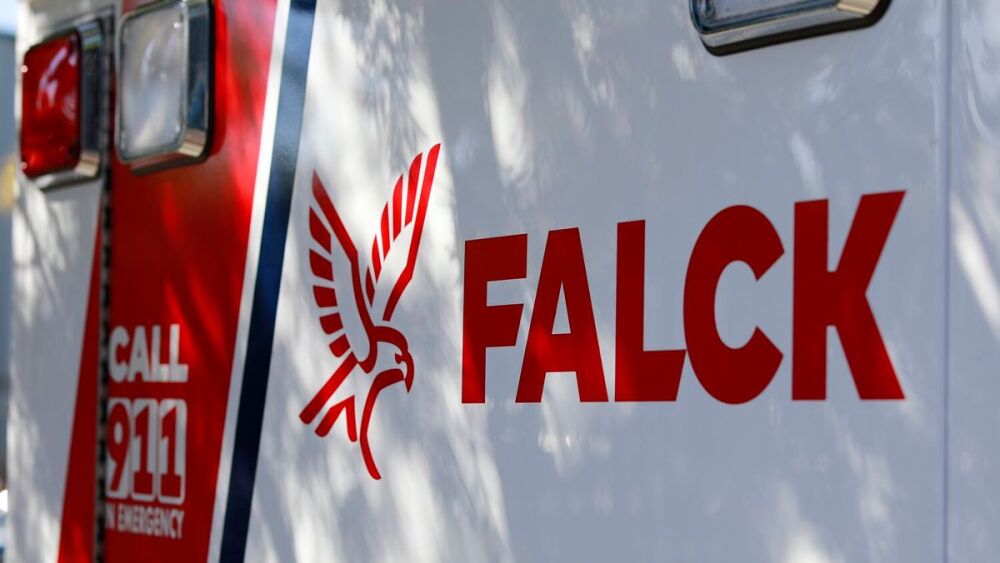By David Garrick
The San Diego Union-Tribune
SAN DIEGO — San Diego and its struggling private ambulance provider have reached a deal that fundamentally changes their partnership by giving the city control over staffing, ambulance deployment and patient billing.
“Public safety belongs with a public agency,” Fire Chief Colin Stowell said Monday. “We can work with and capitalize on what the private contractors specialize in doing. But we know our community best, we know the service level that needs to be provided out there, and we should be the ones dictating how many hours ambulances are on the streets.”
The new set-up, called the alliance model, has become more widely used across California since Contra Costa County first tried it seven years ago. Santa Barbara, San Bernardino and Alameda counties have also adopted it recently.
Because moving to that model involves financial risk for San Diego, Stowell said it will be a year-long experiment that could end with either a long-term deal to continue the new model, or a shift to bringing ambulance service in-house.
“Having this one-year period of the alliance model is going to give us a good indicator of what is the revenue, how are we going to be looking on expenses, and can we develop strong relationships with the private providers that we can count on for long-period contracts,” Stowell said. “I don’t think we have all the answers to those questions right now.”
The agreement, which city officials spent several weeks negotiating, comes after many months of private provider Falck falling far short of the staffing and response-time promises it made when taking over the city’s ambulance service 17 months ago.
The company was fined $1.2 million for failing to meet response-time goals during October, November and December.
Instead of the existing model, where Falck pays San Diego $9 million a year for the right to charge patients, the city will now pay Falck and other providers fees to operate ambulances and will have the right to charge patients itself.
While the model shifts financial risk from Falck to the city, proponents say state law gives public agencies better reimbursement rates from Medicare and Medi-Cal patients than private ambulance providers get.
Stowell said Monday that Contra Costa officials are running a surplus and investing the money into service enhancement. If that happens in San Diego, the city could add new services to its emergency medical system, he said.
The new deal, which is scheduled for approval Friday by the City Council’s Public Safety Committee, also sets the financial parameters for the city’s relationship with Falck until the alliance model kicks in this summer.
Falck no longer faces the same steep fines for falling short on ambulance hours and response times, but it is required to subcontract with a second ambulance provider to boost service.
The deal requires Falck to maintain the average number of advanced life support ambulance hours — 780 hours per day — it has been providing since replacing American Medical Response as the city’s private provider in November 2021.
If Falck falls below that average over the course of a Monday-to-Monday week, the company must pay a $50,000 fine. If it fails for two weeks within any month, the old fine structure would get reactivated.
On the subcontracting, Falck is required to pay another company to close the gap between the 780 daily hours from Falck and the 900 daily hours the city wants.
Stowell said Falck is in talks with AMR to be the subcontractor. He said AMR has told the city it doesn’t yet have the staff or equipment to cover the entire 120-hour gap.
Because the new deal requires the subcontractor to have full accreditation and have a local operation, Stowell said AMR is the only candidate.
Stowell said he’s confident that AMR will be a good partner, despite the city’s decision in 2021 to replace the company with Falck.
“They want to help the city stabilize the EMS system,” he said. “And I think they are probably looking at this strategically as rebuilding that relationship to potentially bid for the new system.”
The new deal may also boost staff morale among Falck’s paramedics and emergency medical technicians, because it triggers a new labor contract with pay raises for them.
Workers will get 9 percent raises in the first year and 4 percent raises in each of the next two years under the contract, which will kick in when the City Council approves the new deal with Falck sometime in May.
Before the deal, the starting annual salary for Falck paramedics in San Diego is currently $57,206.
Councilmember Marni von Wilpert, who leads the Public Safety Committee, praised the new deal Monday.
“Providing quality, on-time emergency 9-1-1 ambulance response is a critical life-saving service that San Diegans are counting on,” she said. “I am pleased to see this amendment finally coming forward to allow Falck to subcontract with another company to get more ambulances on the road.”
Stowell said a second contract amendment, likely in July, will be needed to fully implement the alliance model.
Falck spokesperson Jeff Lucia said Monday the company supports the alliance model and the interim pact.
“Falck supports this contract amendment because it will further enhance the improved EMS service currently being delivered to San Diegans,” he said.
This story originally appeared in San Diego Union-Tribune.
©2023 The San Diego Union-Tribune.
Visit sandiegouniontribune.com.
Distributed by Tribune Content Agency, LLC.












